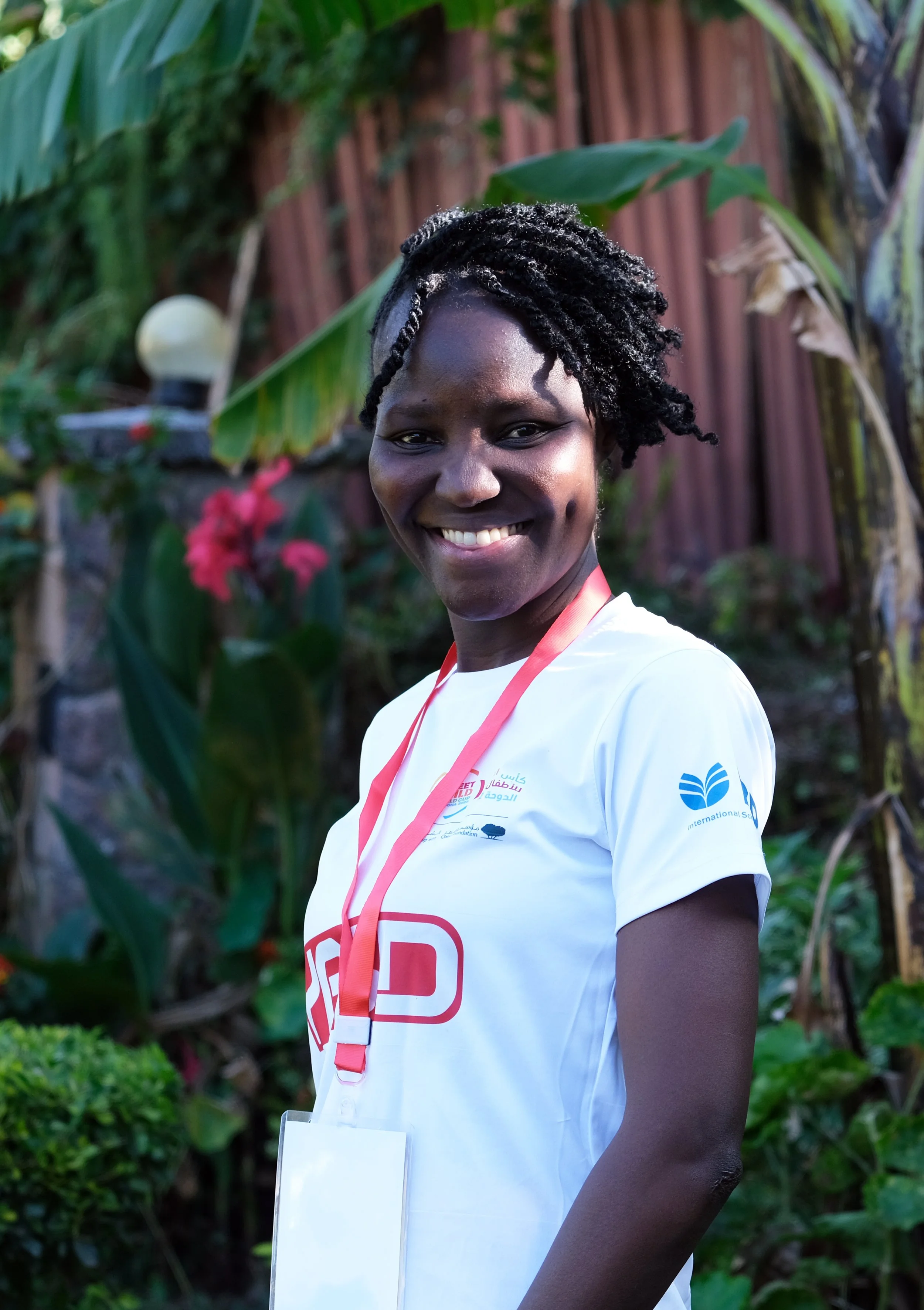The Homeless World Cup is more than a tournament. we raise awareness of homelessness and change lives through our year round projects.
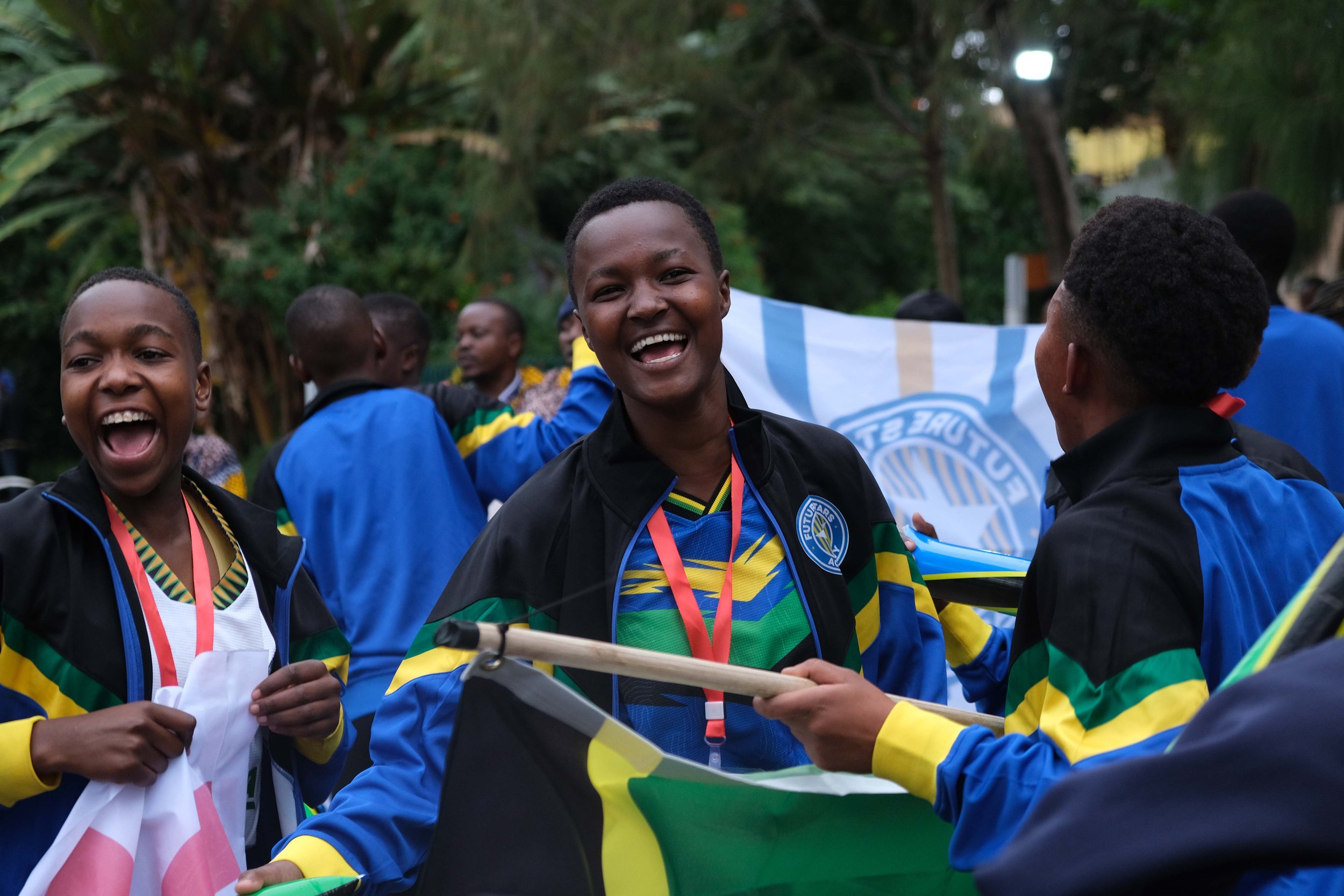
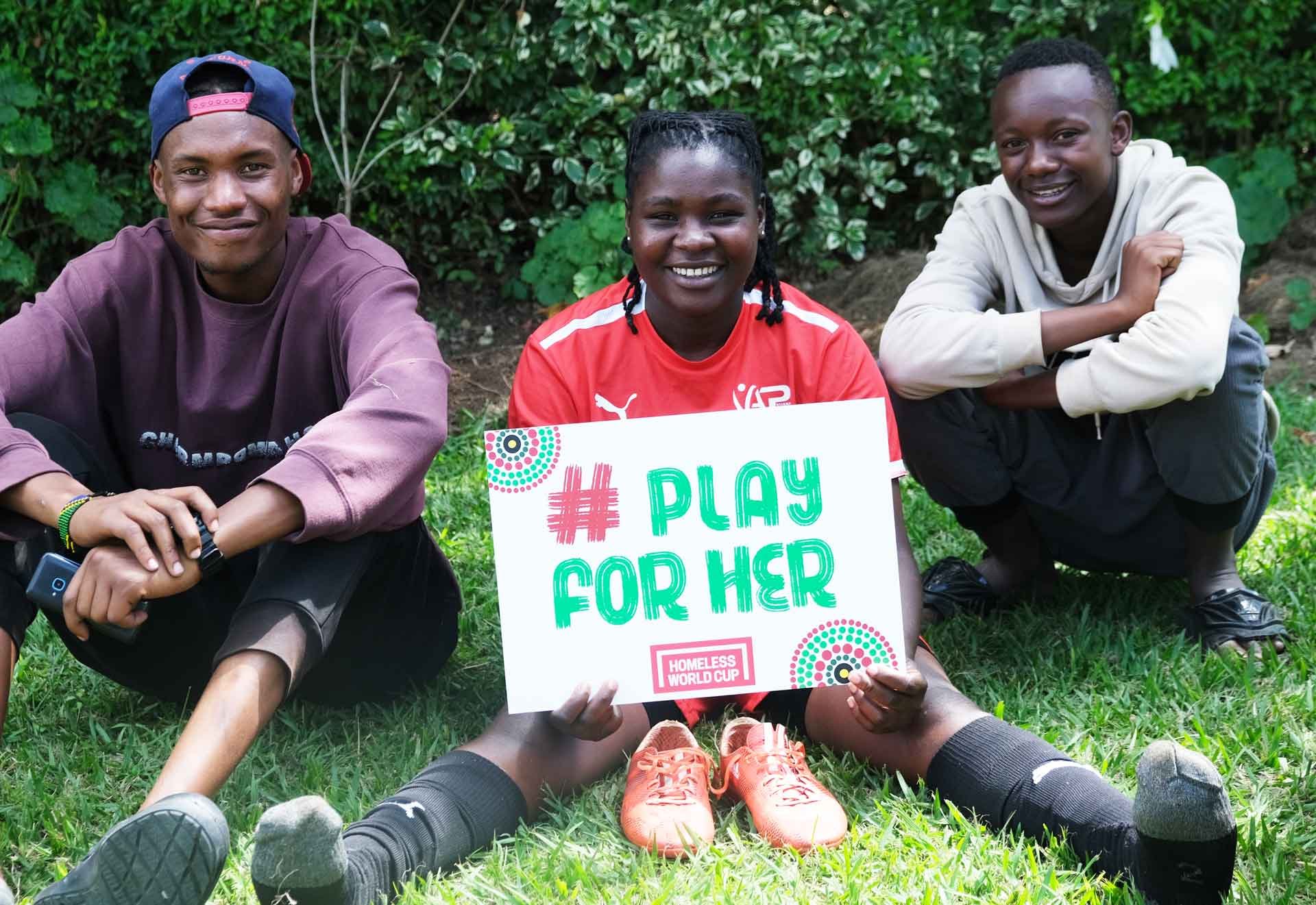
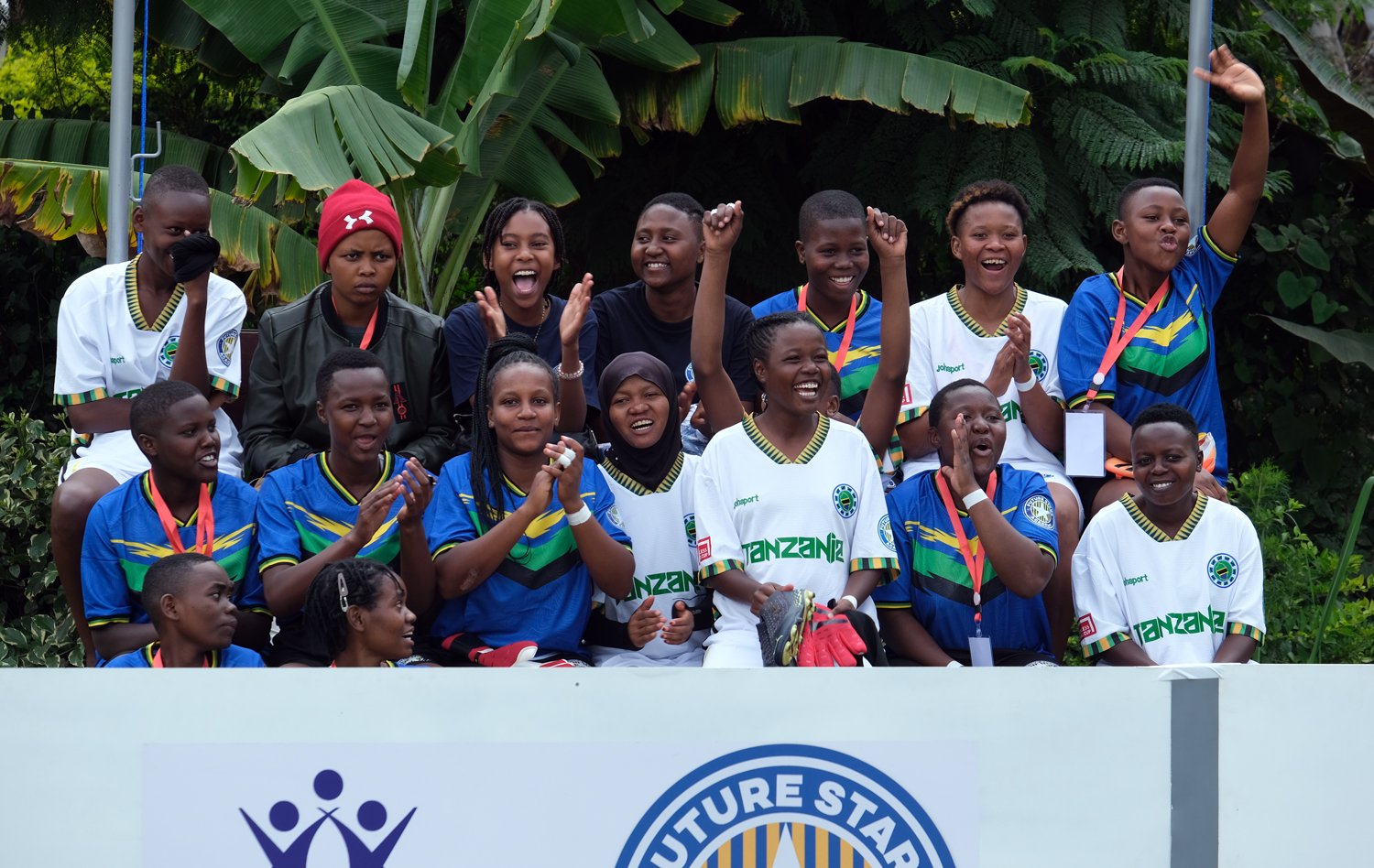
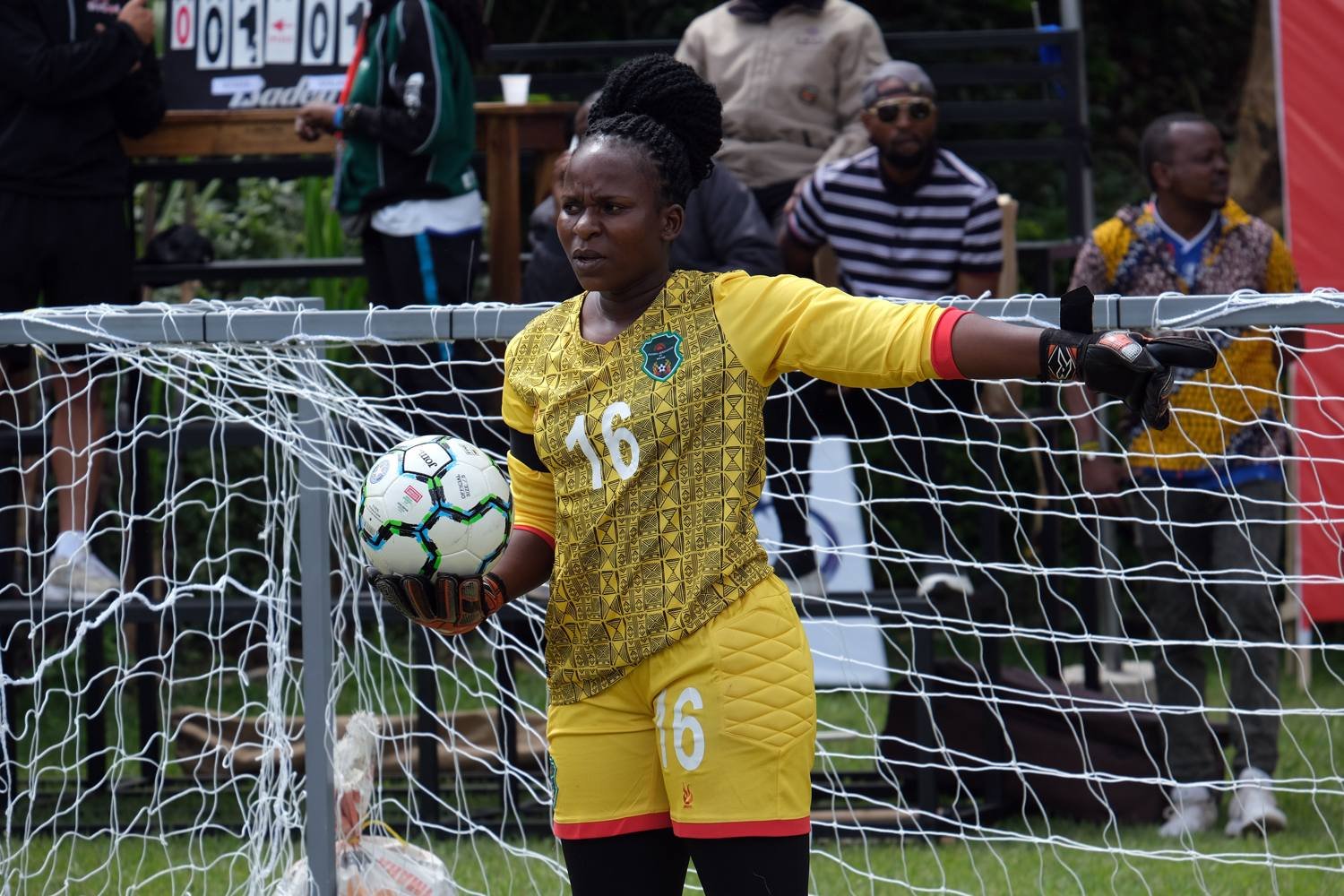
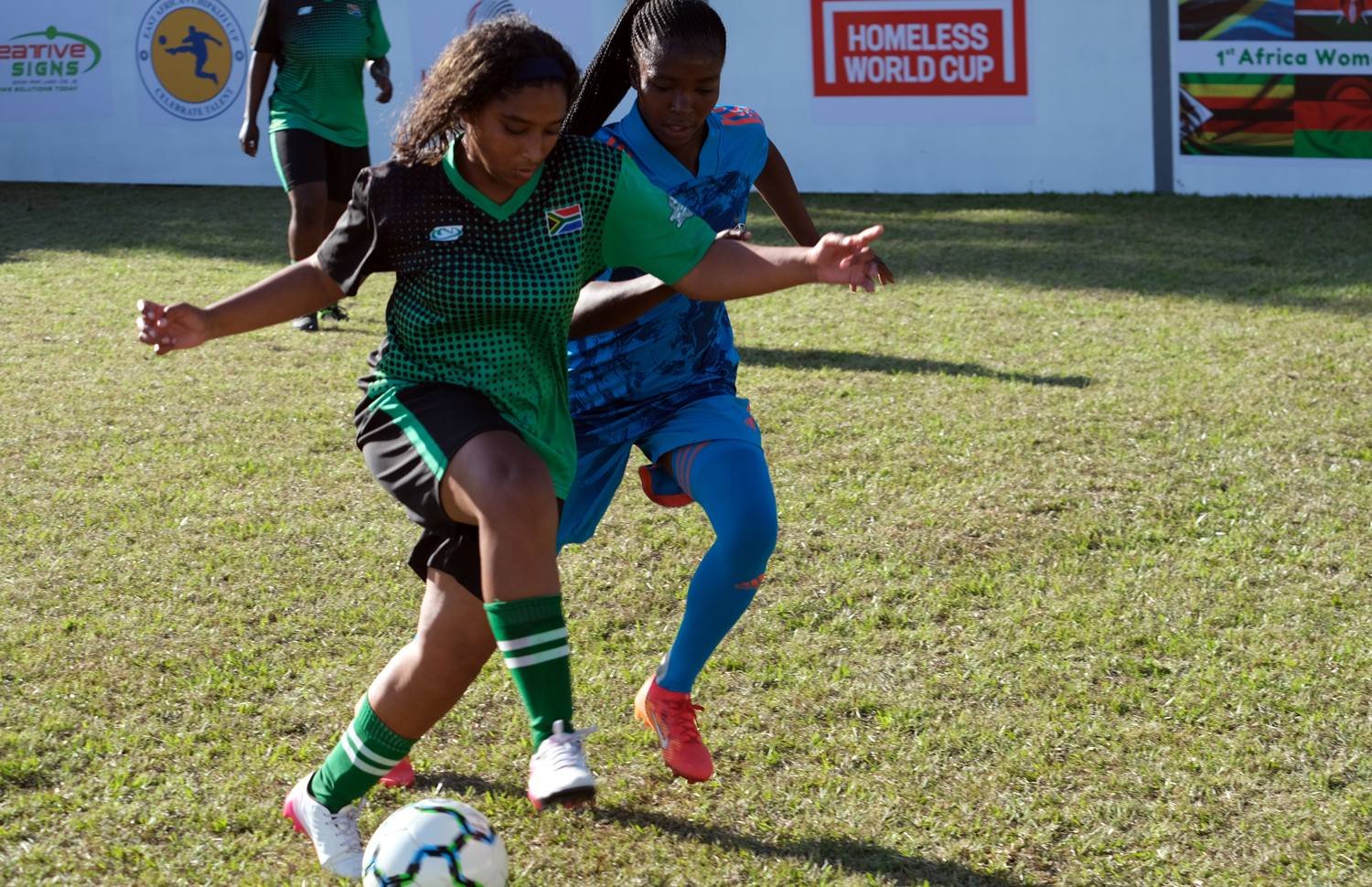


Football to Protect Vulnerable Women from Exploitation
It’s time to #PlayForHer
A partnership over two years (January 2024 - December 2025) between the Homeless World Cup Foundation, the FIFA Foundation and four African Homeless World Cup Member Countries as the implementing partners:
The project will use the power of football to identify vulnerable women, engage them in safe football activities and to guide and support them to safe and productive alternatives to exploitation.
The Africa Women’s Cup took place in Arusha, Tanzania in June 2024 which saw eight women’s teams competing from across Africa was part of the project.
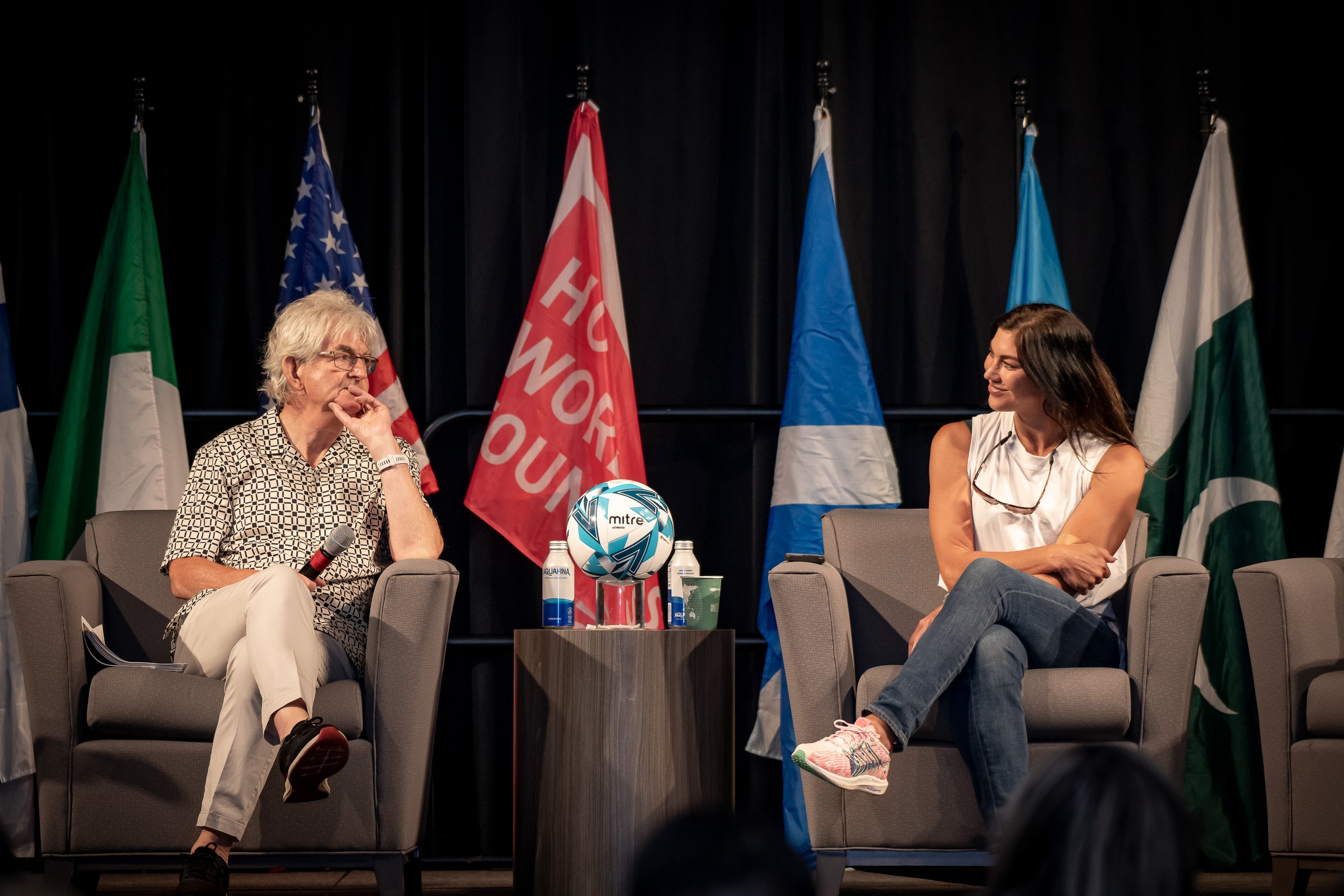
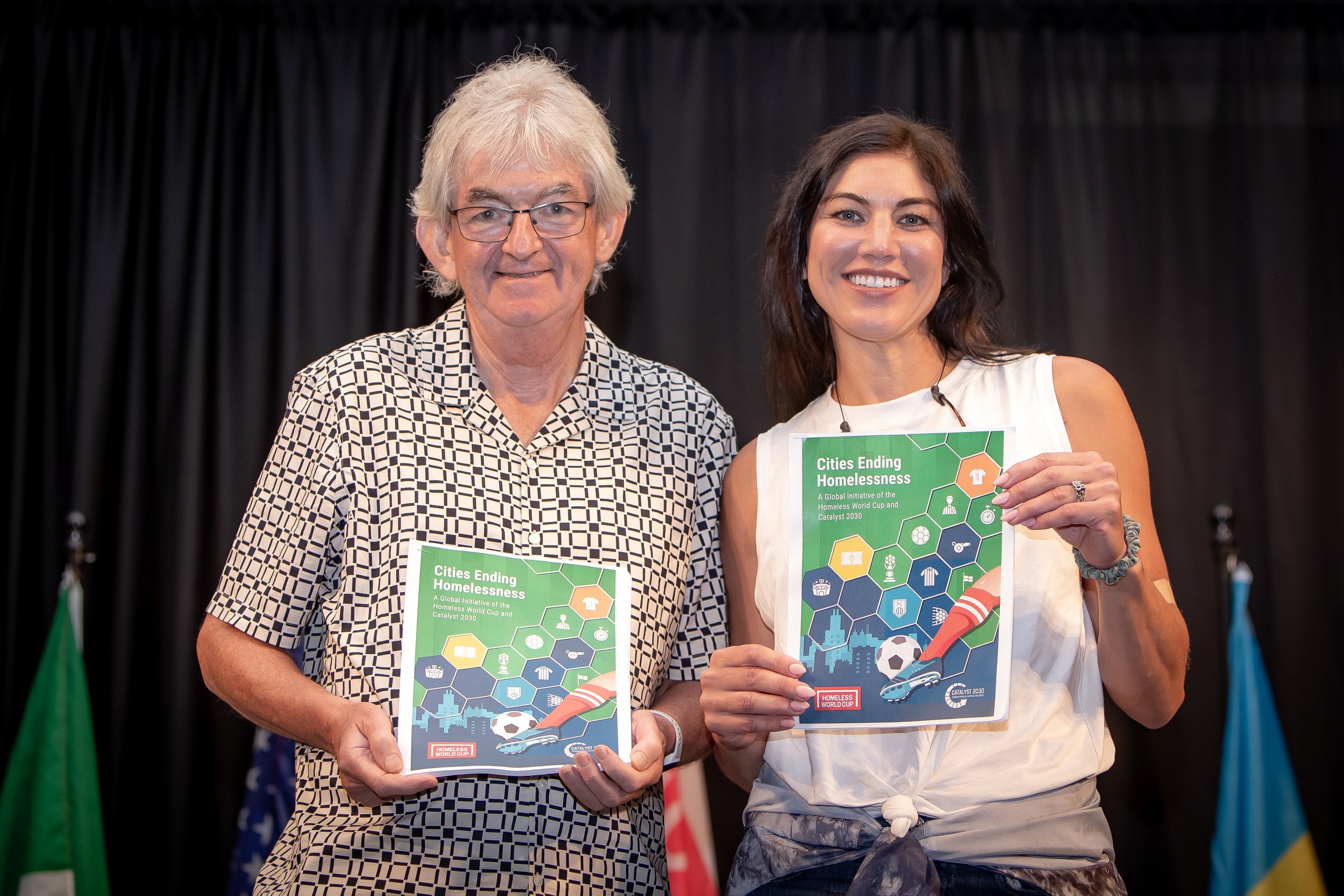
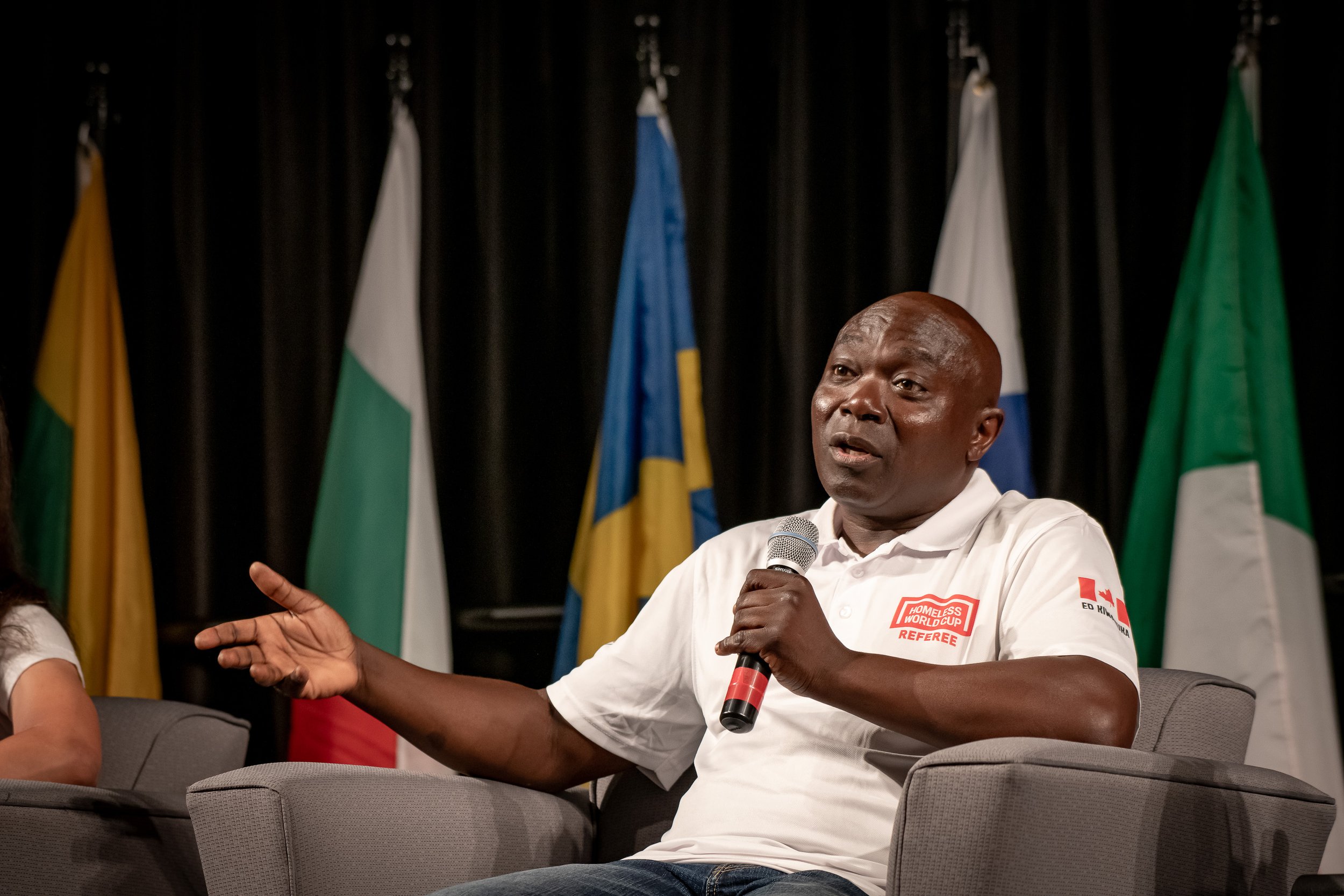
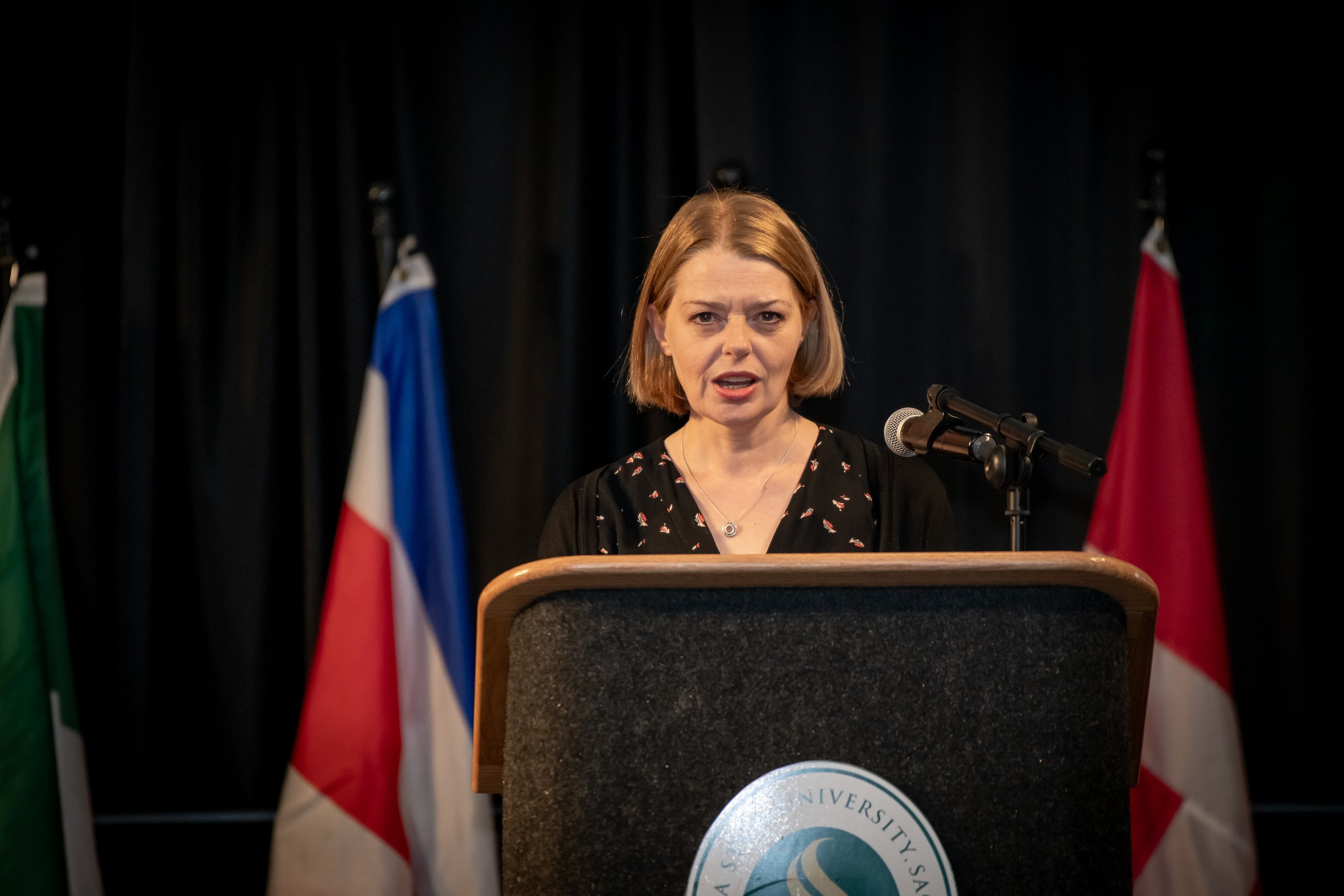
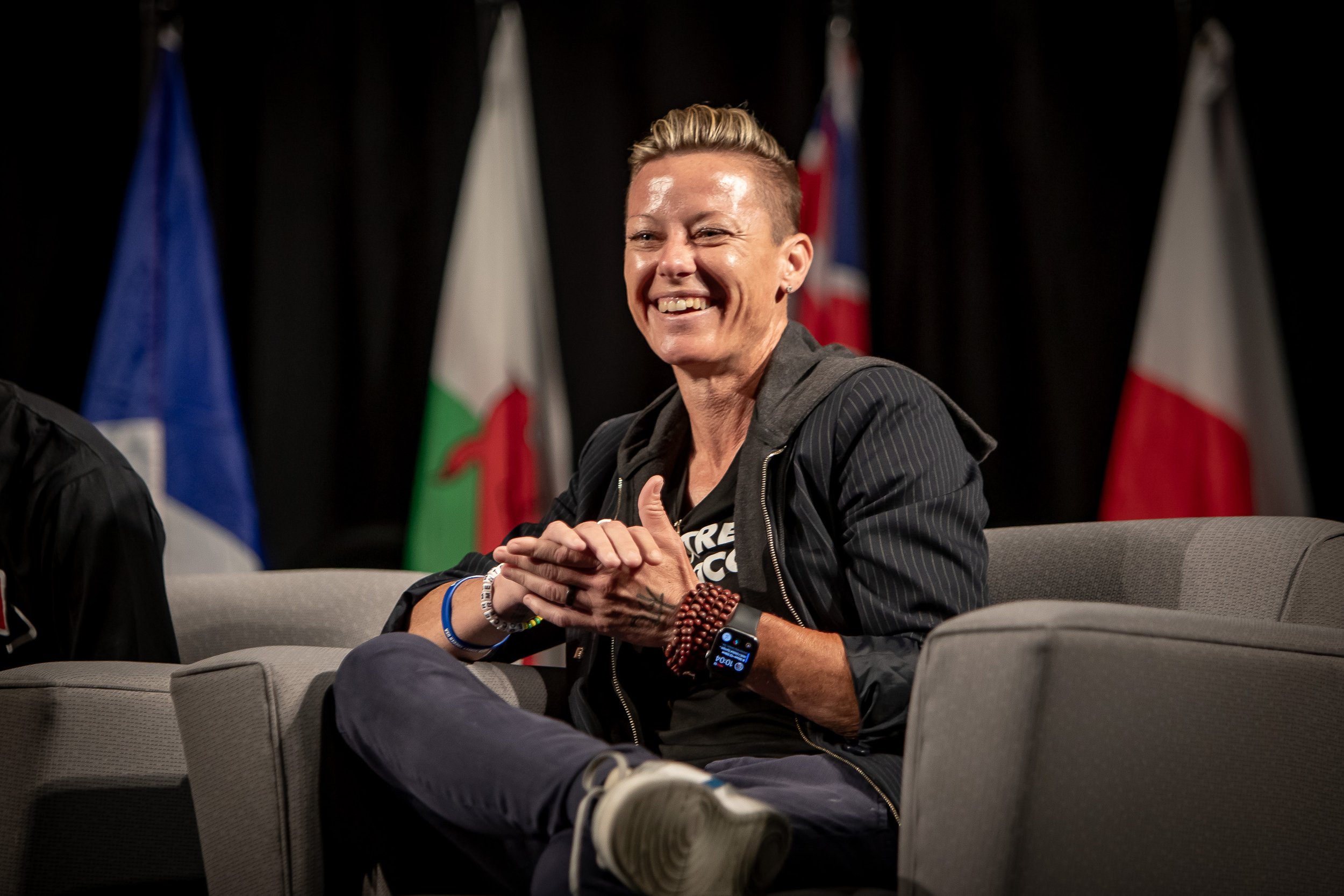
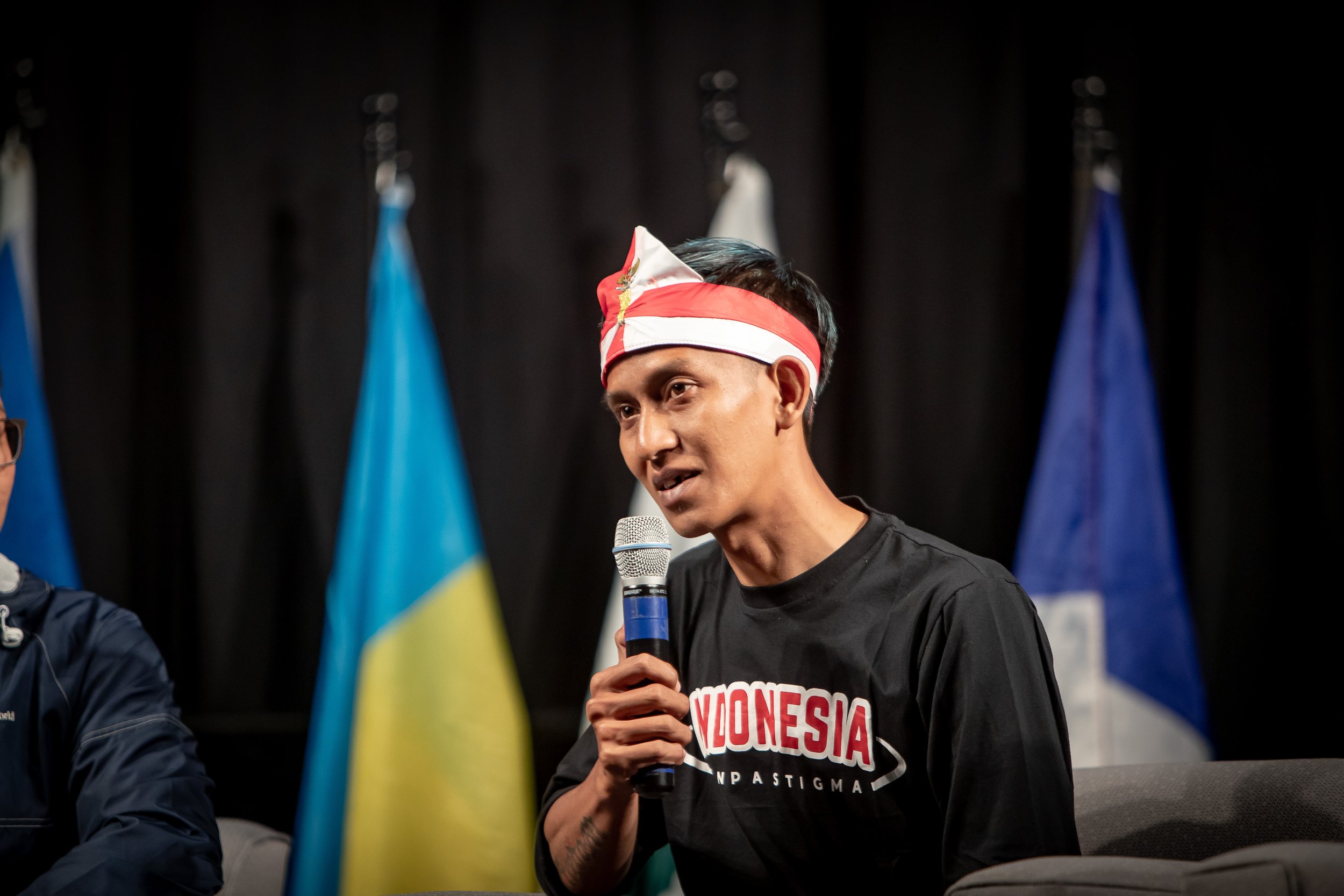
Cities ending Homelessness
A GROUNDBREAKING INITIATIVE WITH A CALL TO ACTION FOR PEOPLE TO JOIN US IN A CONSTRUCTIVE DISCUSSION ABOUT HOW TO END GLOBAL HOMELESSNESS.
Cities are where homelessness is most concentrated and where the greatest challenges arise - whether social, financial or political. Cities are where the solutions are needed but they are also where solutions will come from.
There is no one reason for homelessness, there is no one solution and no one city has all the answers. By understanding the causes of homelessness in each city’s unique context we will match decision makers with teams of social innovators who can help them develop creative solutions, tailored to their needs.
These cities will benefit from and feed into the Cities Ending Homelessness network so they can share best practice and their experiences. They will contribute to an evolving portfolio of solutions that can be used by any city seeking to end homelessness.
Cities Ending Homelessness was launched at the Sacramento 2023 Homeless World Cup.
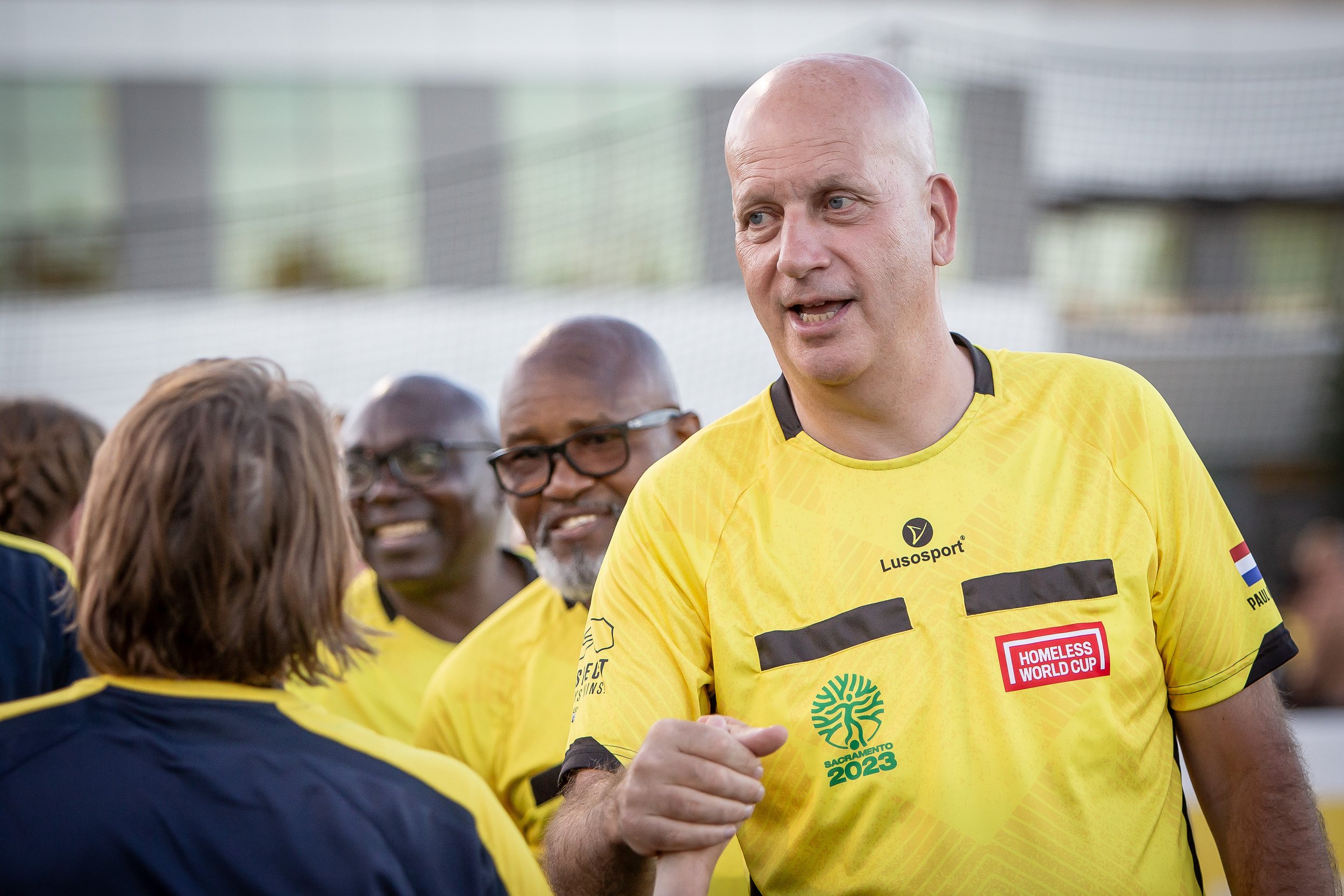
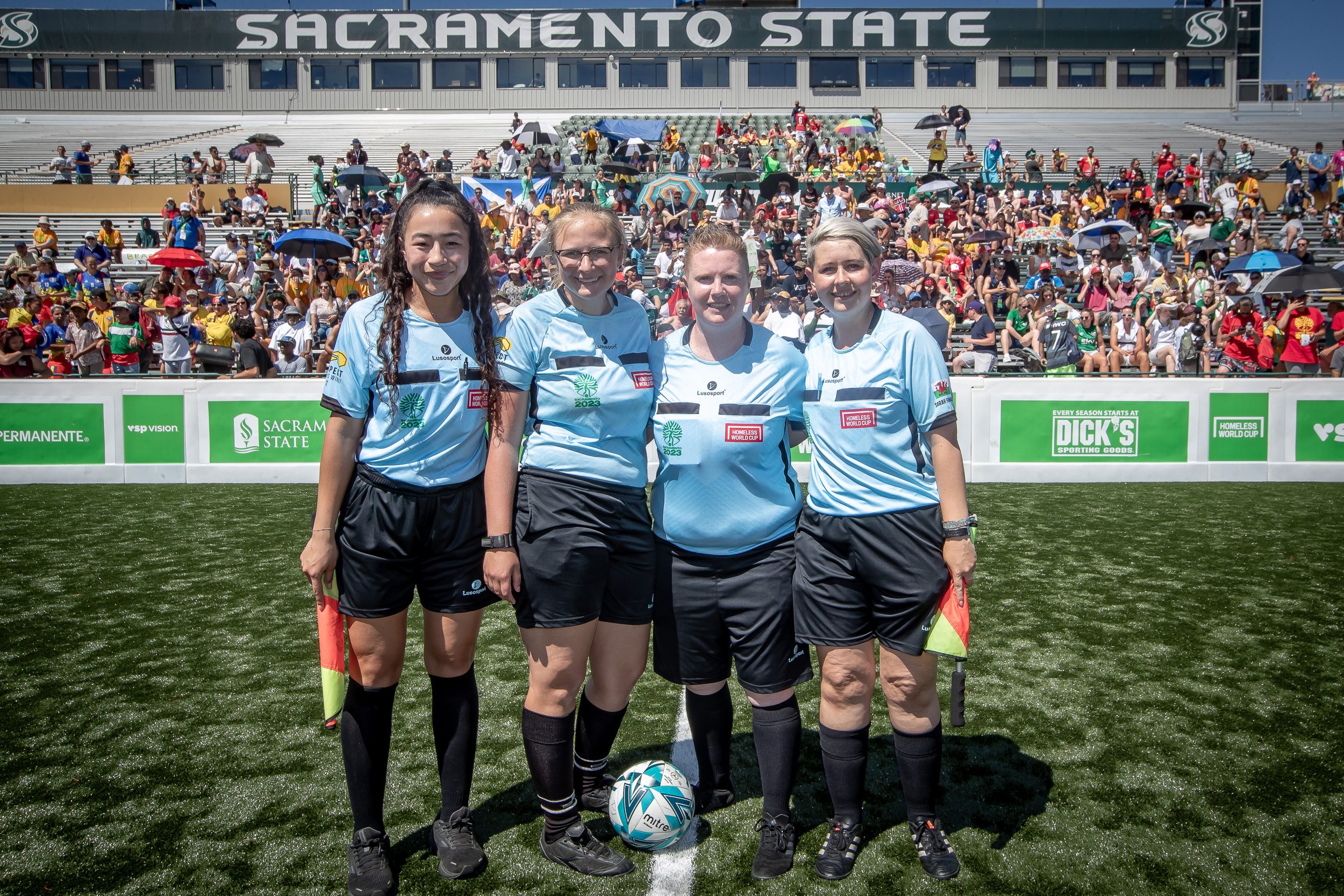
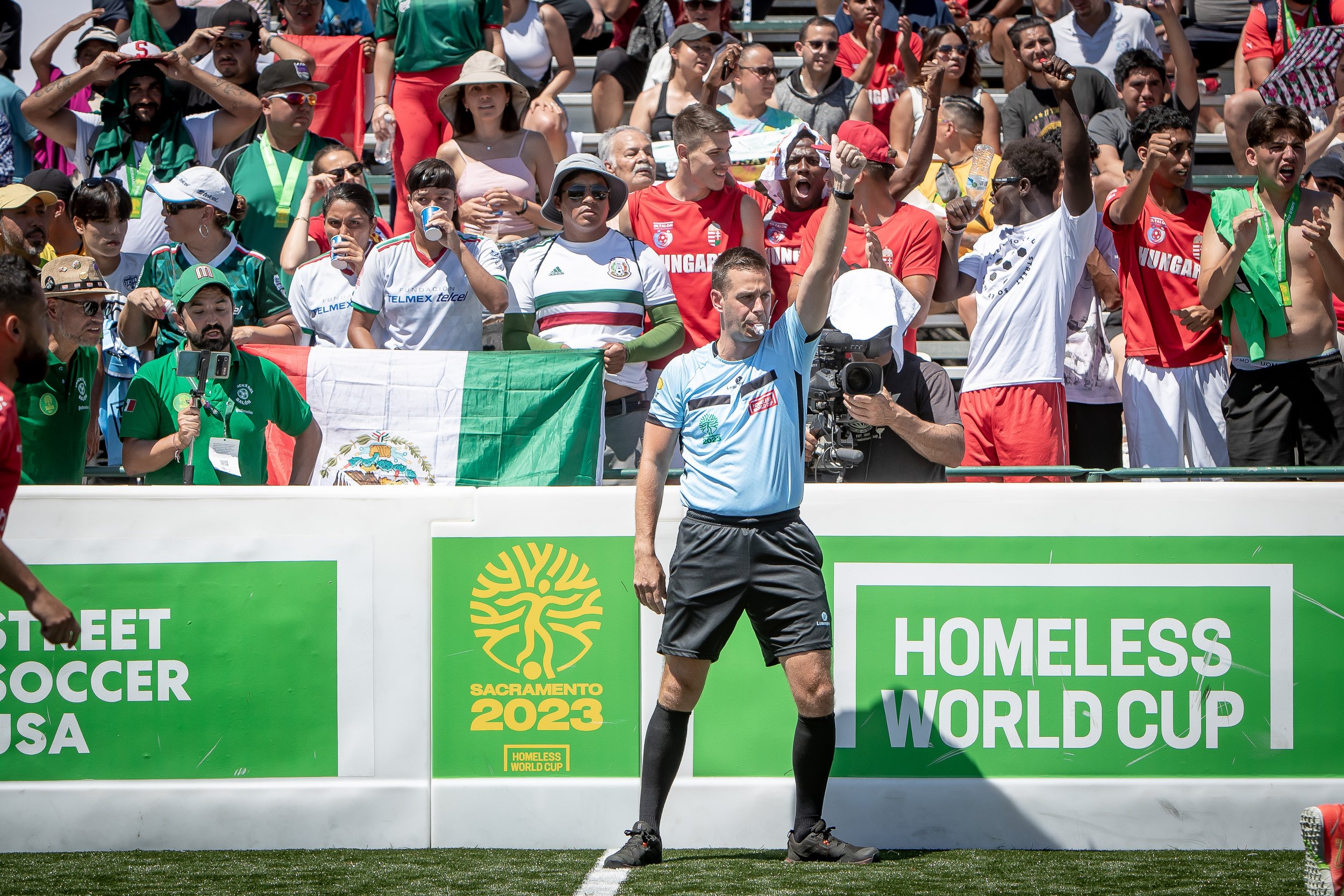
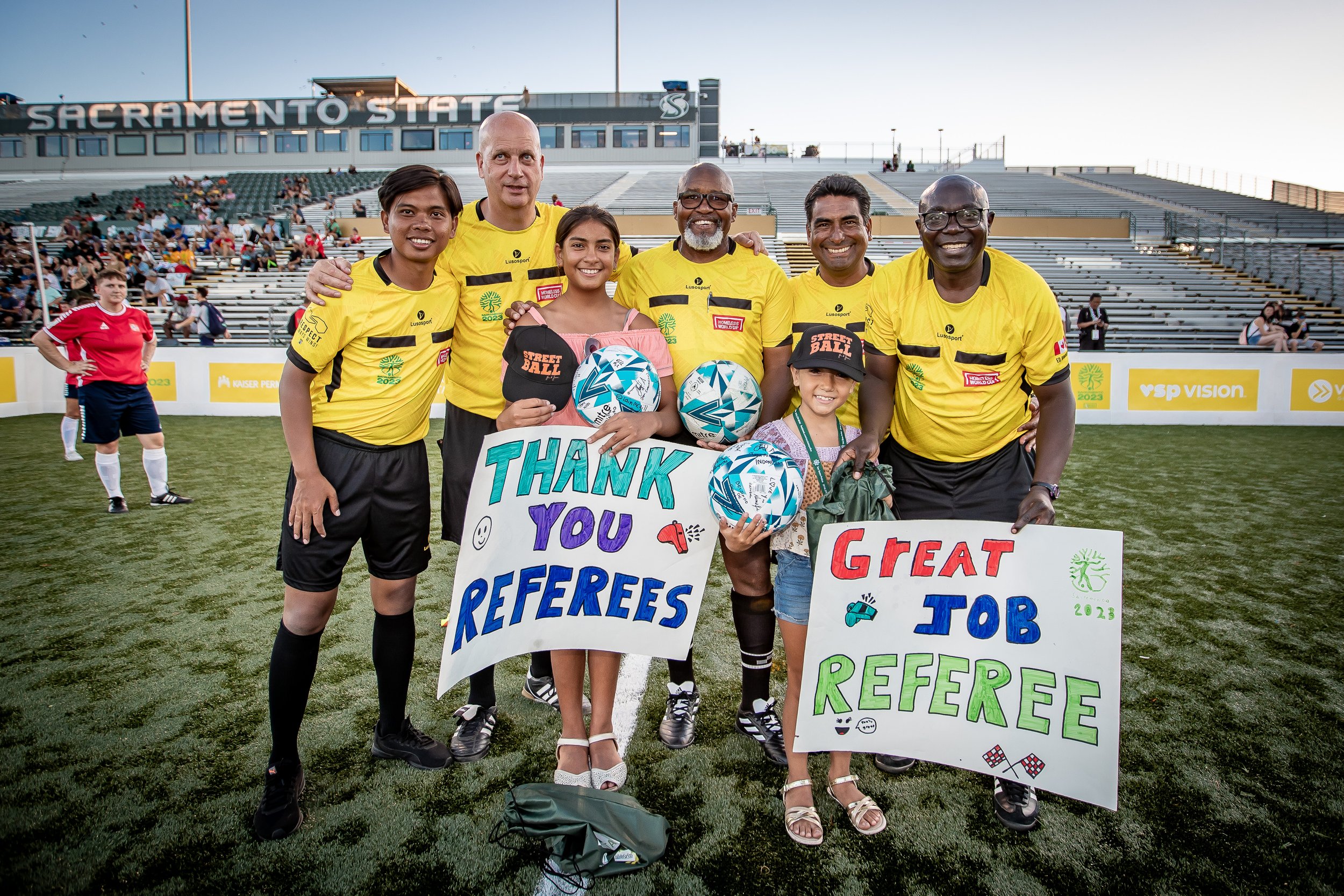
International Referee Programme
Over many years and international tournaments, the Homeless World Cup has gathered a dedicated group of international referees. Every year, they volunteer their time and skills. Some are professional FIFA referees in their own countries, while others are street football referees for various events.
Inspired by our Homeless World Cup Partner in Switzerland, Surprise Strassenfussball, that has trained their players to become referees for local events, the Homeless World Cup Foundation started to deliver an international referee programme on a similar level.
Paul Nagtegaal, who is based in the Netherlands and part of our core team of international referees, developed a curriculum for international street football referees. Through the programme we train local referees, former Homeless World Cup players and partner’s participants to become official Homeless World Cup Referees.
-
Our international referee programme is aimed at former players from our Global Network as well as local referees in countries hosting the Homeless World Cup tournament.Many players who take part in one of our partners’ programmes want to stay involved with street soccer, especially after having played at the Homeless World Cup. An opportunity is for them to train as a Homeless World Cup official referee and whistle at one of our events.
Many of our partners on the ground use local referees at their own national and regional tournaments. They can come from professional leagues, clubs or neighbour countries. We want to train all referees to the same standard and become international Homeless World Cup referees.
-
The course is divided into three parts: theory, practice and advanced practice. The theory takes place in a classroom set-up or online and includes:
• Learning Homeless World Cup official rules• Understanding what a good referee is
• Getting feedback on their behaviour on the pitch
The practice component takes place on the pitch. Participants take part in games and refereeing situations where they can put what they have learnt in the classroom into action.Finally, participants are given the chance to referee at a real tournament.
Upon completion of the course students are awarded their official Homeless World Cup International Refereeing Programme Certificates.
Meet some of our referees
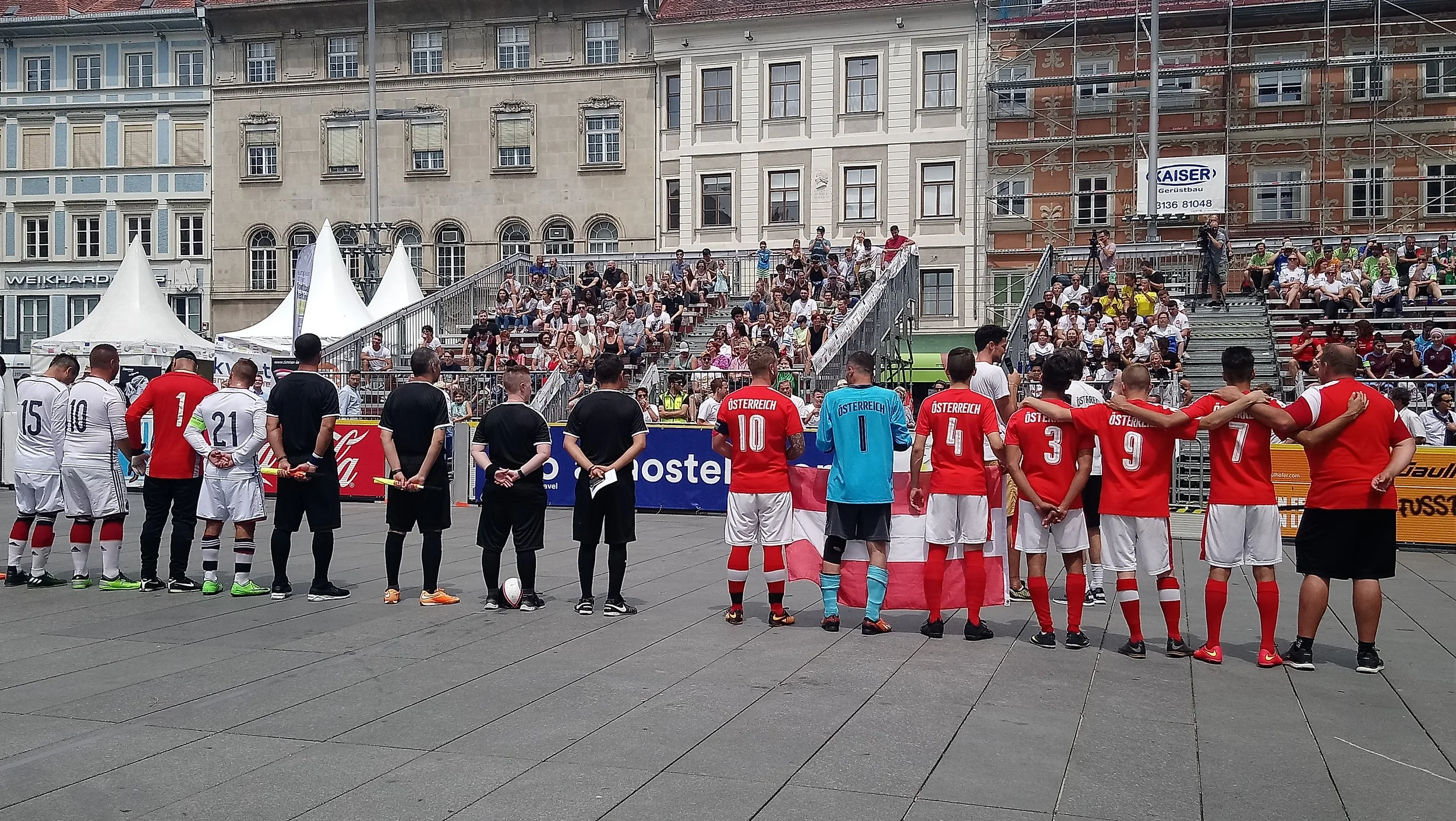
Previous Projects
International Partners Sharing Skills (iPass)
3 conferences
9 european Exchanges
3 football street festivals
The Homeless World Cup Foundation was awarded a 3-year grant from the European Commission via the Erasmus+ programme for education, training, youth, and sport. The project was managed by the Homeless World Cup Foundation in collaboration with 21 of our European partners. It took place from 2016-2018 to develop cooperation between Homeless World Cup Street Football Partners in Europe.
Get-togethers, exchanges and Street Football festivals brought European partners together to share skills, experience, and knowledge to grow the capacity of each partner and strengthen the network in its mission to change the lives of homeless people through football.
Each year of the programme consisted of one European Get-together, three European Exchanges and one European Street Football Festival. Participating partners took turns in hosting the different events.
The 21 partners that collaborated in this project all have different skills, knowledge and experience. Some are very strong and established, others new and still developing. By facilitating inter-partner learning and sharing opportunities, a collective knowledge was developed.
Partners built rapport and stronger relationships with one another, which encouraged continued learning, sharing, and networking long after the funding for this project ceased.
We hosted three informal conferences for delegates from all 21 Erasmus+ programme partners. They were an important opportunity for partner representatives to exchange and share knowledge, as well as make strategic decisions on the direction of the Erasmus+ project.
• Sofia, Bulgaria 2016
• Helsinki, Finland 2017
• Ljubljana, Slovenia 2018
During the exchanges, one partner hosted representatives from three other participating programmes to exchange knowledge and skills around certain geographically relevant topics and development themes in relation to tackling homelessness through football.
The Erasmus+ programme included three European Exchanges per year – a total of nine exchanges by the end of the programme. Some cities hosted multiple events.
• Beja, Portugal 2016
• Gothenburg, Sweden 2016
• Utrecht, Netherlands 2016
• Moss, Norway 2017
• Athens, Greece 2017
The European Street Football Festivals was a larger event that gathered all participating countries together. The four-day event consisted of player development workshops over two days, and a two-day street football tournament. The Erasmus+ programme included three festivals, one for each year of the tournament.
• Manchester, UK 2016
• Sofia, Bulgaria 2017
• Graz, Austria 2018




